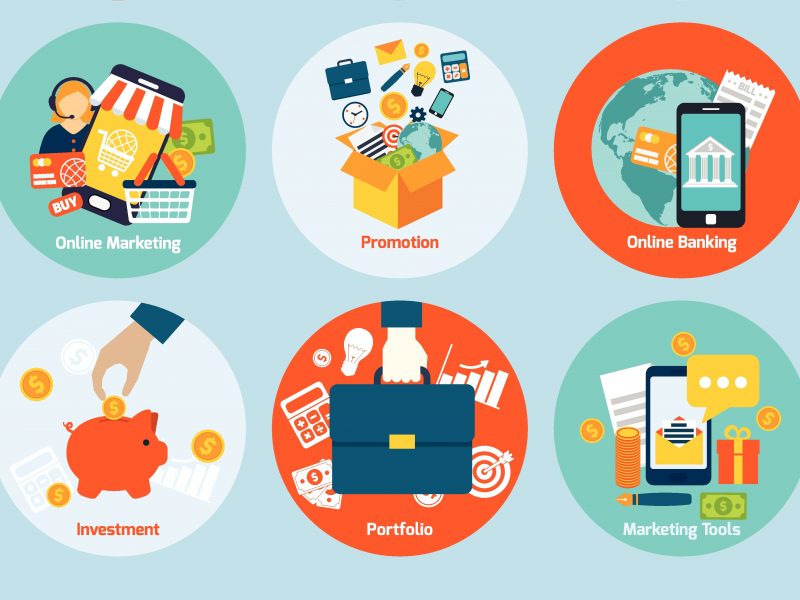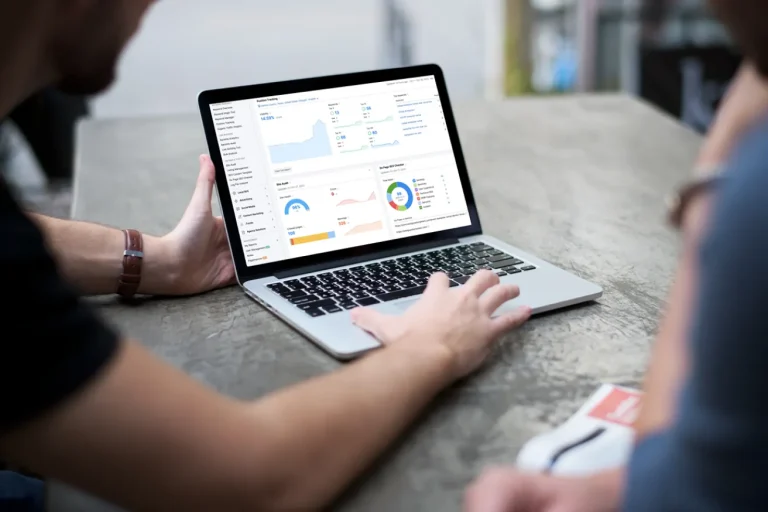How to Become an Ecommerce Expert in 2024: A Complete Guide
Ecommerce is a booming industry that offers many opportunities for professionals who want to excel in online sales and marketing. However, becoming an ecommerce expert is not easy. It requires a lot of skills, knowledge, and experience in various aspects of ecommerce. In this guide, we will show you how to become an ecommerce expert in 2024.
What is an ecommerce expert and why you should become one
An e-commerce expert is someone who focuses on creating and executing online sales plans for businesses. They assist in improving websites, boosting traffic, getting more potential customers, and turning them into actual buyers. These experts also keep an eye on how well their e-commerce strategies are doing and make necessary enhancements.
Becoming an ecommerce expert can be very rewarding for several reasons:
- You have the opportunity to collaborate with diverse businesses, ranging from small startups to large corporations, aiding them in enhancing their online visibility and revenue streams.
- Your blend of creativity and analytical abilities can be employed to devise cutting-edge ecommerce solutions.
- Staying abreast of the latest trends and technologies in ecommerce allows you to leverage them effectively.
- Additionally, you can receive a competitive salary and benefit from a flexible work schedule.
The skills and qualifications you need
To excel in e-commerce, you must have skills in technology, marketing, and business. Here are some crucial qualifications and abilities required:
Technical skills:
Understanding the workings of e-commerce is vital for success. This includes knowing different platforms, tools, and systems. You need skills in SEO, PPC, social media, email marketing, content marketing, and conversion optimization. It’s crucial to be familiar with platforms like Shopify, WooCommerce, Magento, and BigCommerce, and be skilled in advertising on Google Ads, Facebook Ads, and Instagram Ads. Knowledge of web design, web development, and web analytics is also important.
Marketing skills:
To be successful in online marketing, you should understand keywords, study competitors, know your customers, and grasp concepts like branding and storytelling. Additionally, you must excel in designing and managing ecommerce marketing campaigns aligned with business objectives and target audience. It’s crucial to track and analyze campaign performance, making adjustments for improved effectiveness.
Business skills:
To succeed in e-commerce, you need to understand the industry and current market trends well. It’s important to identify and explore customer needs and problems. Good communication with stakeholders, like business owners and team members, is crucial. Presenting ideas and suggestions clearly and persuasively makes you more effective in this field.
To become an ecommerce expert, you can start with a high school diploma or GED. However, many employers prefer candidates with a bachelor’s degree in areas like marketing, commerce, or digital business. If you want to boost your skills and credentials, consider taking online courses and certifications focused on ecommerce.
The steps to become an ecommerce expert
Becoming an ecommerce expert is a process that involves learning, practicing, and improving your skills and knowledge. Here are some steps you can take to become an ecommerce expert:
Step 1: Learn the basics of ecommerce
The first step is to familiarize yourself with the fundamentals of ecommerce, such as the types, models, and benefits of ecommerce, the ecommerce platforms and tools, and the ecommerce terminology and concepts. You can learn the basics of ecommerce by reading books, blogs, articles, and guides, or by taking online courses and tutorials.
Step 2: Learn the basics of SEO
Step two involves grasping the fundamentals of SEO. SEO, or Search Engine Optimization, aims to enhance a website’s visibility and ranking on search engines. For e-commerce, SEO is crucial because it boosts organic traffic, improving the likelihood of attracting more customers to your site. You can acquire SEO basics through reading blogs, guides, and books on the subject, or by enrolling in online courses and obtaining certifications.
Step 3: Become an expert on ecommerce SEO
The third step is to become an expert on ecommerce SEO, which is the application of SEO techniques and strategies specifically for ecommerce websites. Ecommerce SEO is different from regular SEO, as it involves optimizing product pages, category pages, and product descriptions, as well as using schema markup, rich snippets, and product reviews. You can become an expert on ecommerce SEO by reading ecommerce SEO blogs, guides, and books, or by taking online ecommerce SEO courses and certifications.
Step 4: Get to know popular ecommerce platforms
The fourth step is to get to know popular ecommerce platforms, such as Shopify, WooCommerce, Magento, and BigCommerce, which are the software that allow you to create and manage your online store. You should be able to use these platforms to set up your store, add products, customize your design, integrate payment methods, and manage your orders. You can get to know popular ecommerce platforms by reading their documentation, tutorials, and blogs, or by taking online courses and certifications on these platforms.
Step 5: Build PPC campaign management skills
The fifth step is to build PPC campaign management skills, which are the skills required to create and run paid advertising campaigns on platforms such as Google Ads, Facebook Ads, and Instagram Ads. PPC campaigns can help you boost your ecommerce sales by reaching more potential customers and driving more traffic to your website. You should be able to create and manage PPC campaigns that match your budget, goals, and audience. You can build PPC campaign management skills by reading PPC blogs, guides, and books, or by taking online PPC courses and certifications.
Step 6: Learn how to run content marketing campaigns for online stores
The sixth step is to learn how to run content marketing campaigns for online stores, which are the campaigns that involve creating and distributing valuable and relevant content to attract and retain customers. Content marketing can help you increase your ecommerce sales by building trust, authority, and loyalty with your customers, as well as by educating them about your products and services. You should be able to create and distribute content that matches your brand, niche, and audience, such as blog posts, videos, podcasts, ebooks, infographics, and webinars. You can learn how to run content marketing campaigns for online stores by reading content marketing blogs, guides, and books, or by taking online content marketing courses and certifications.
Step 7: Build email marketing skills
The seventh step is to build email marketing skills, which are the skills required to create and send emails to your customers and prospects. Email marketing can help you increase your ecommerce sales by nurturing your leads, increasing your conversions, and encouraging repeat purchases. You should be able to create and send emails that are personalized, engaging, and relevant, such as welcome emails, cart abandonment emails, product recommendation emails, and loyalty program emails. You can build email marketing skills by reading email marketing blogs, guides, and books, or by taking online email marketing courses and certifications.
Step 8: Master conversion optimization techniques
The eighth and final step is to master conversion optimization techniques, which are the techniques that help you improve the performance of your ecommerce website and increase the percentage of visitors who take the desired action, such as buying a product, signing up for a newsletter, or leaving a review. Conversion optimization can help you increase your ecommerce sales by reducing bounce rates, increasing click-through rates, and enhancing user experience. You should be able to use conversion optimization techniques such as A/B testing, heatmaps, surveys, and landing pages to optimize your ecommerce website. You can master conversion optimization techniques by reading conversion optimization blogs, guides, and books, or by taking online conversion optimization courses and certifications.
The best practices and tips to succeed as an ecommerce expert
Becoming an ecommerce expert is not enough to succeed in this competitive and dynamic industry. You also need to follow some best practices and tips to stay ahead of the curve and deliver the best results for your clients or employers. Here are some best practices and tips to succeed as an ecommerce expert:
Keep learning and updating your skills
The e-commerce field changes quickly, so it’s important to stay updated on the latest trends and technologies. Always be ready to learn new things and improve your skills. You can stay informed by reading industry news, blogs, and magazines, attending webinars and events, joining online communities, and taking online courses.
Build your portfolio and network
In the world of online business, it’s important to compete and make your work visible to others. Build your portfolio and connect with professionals by creating a website or blog. Show off your projects, ask for feedback, and join online groups. Reach out to potential clients or employers to grow your network.
Be creative and innovative
The e-commerce field is always changing, and it needs creativity and innovation. To enhance your e-commerce strategies, try out new ideas, test hypotheses, use various tools, and seek feedback.
Be flexible and adaptable
The e-commerce field can be unpredictable, so it’s crucial to stay flexible and adapt. Be prepared for challenges and chances, and adjust your strategies by keeping an eye on market shifts, customer opinions, and competitor moves. Stay open to new ideas and suggestions.
Be ethical and responsible
In the world of online business, it’s important to be ethical and responsible. This means following rules, respecting customers’ rights and privacy, and being honest and transparent. Avoid unethical stuff like plagiarism, spam, fraud, or hacking. Stick to ecommerce laws and use secure platforms.
Conclusion
Becoming skilled in e-commerce by 2024 is possible and realistic. With the correct skills and experience, you can succeed in online sales and marketing, aiding businesses in boosting their online presence and income. Continuous learning and improvement of your e-commerce strategies are essential. A dependable partner can assist you with your e-commerce requirements.
OnextDigital is a leading company that offers web development, UX/UI design, mobile app development, and white label software services. Whether you need a custom ecommerce website, a user-friendly mobile app, or a white label software solution, we can provide you with the best quality and value. Contact us today and let us help you become an ecommerce expert in 2024.







